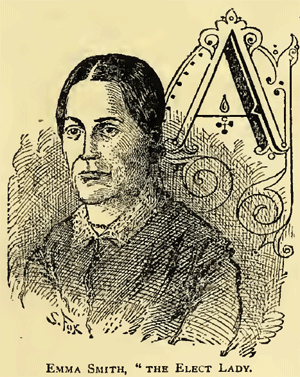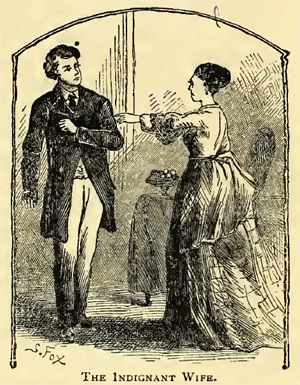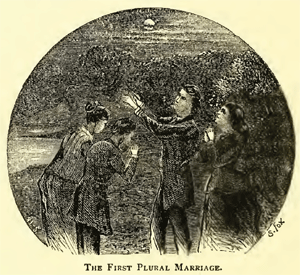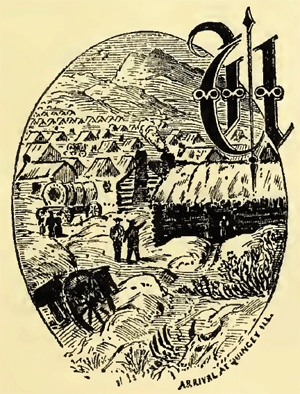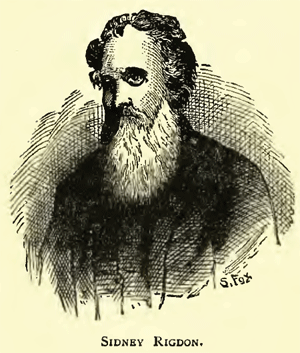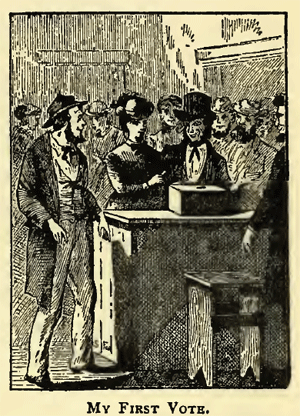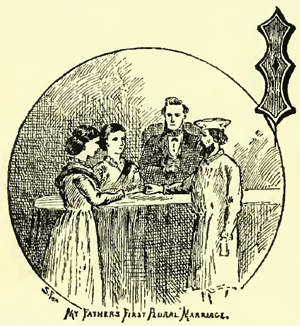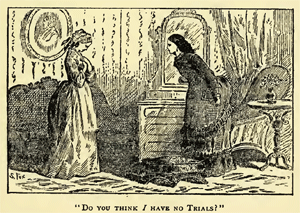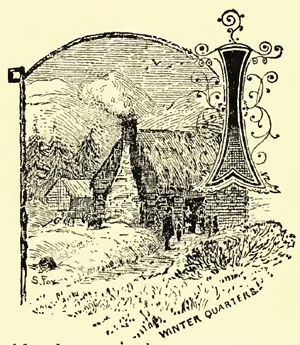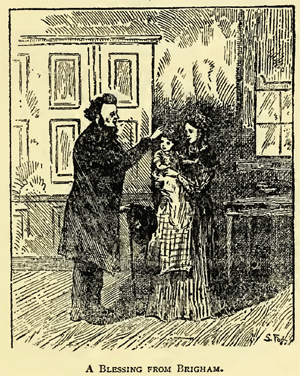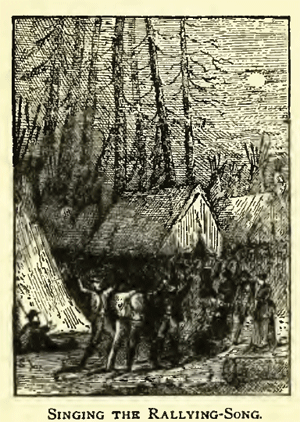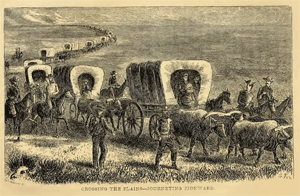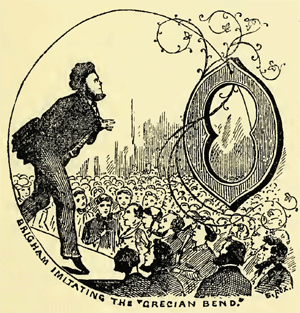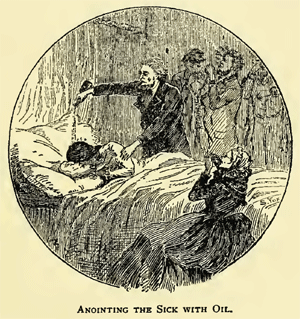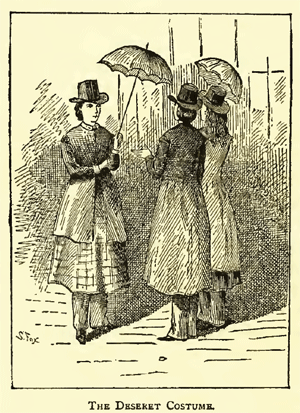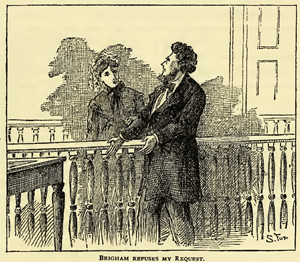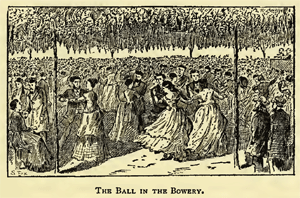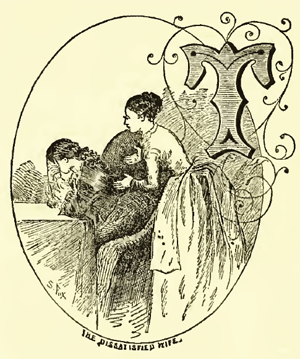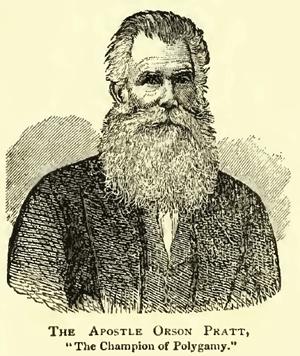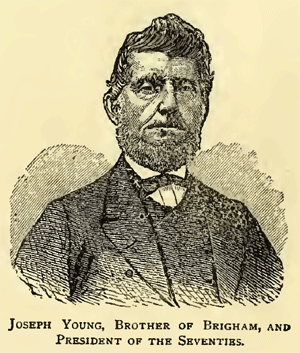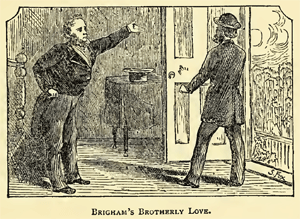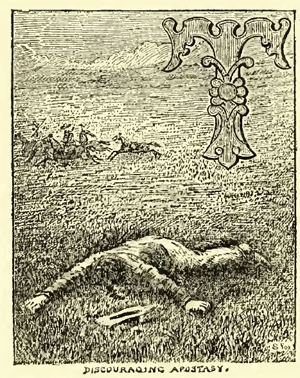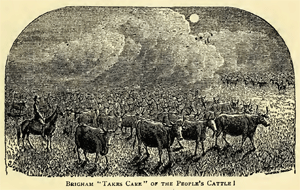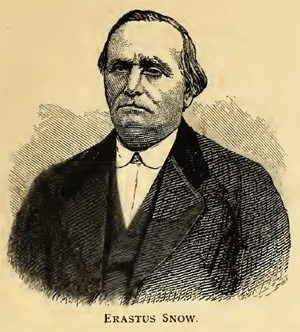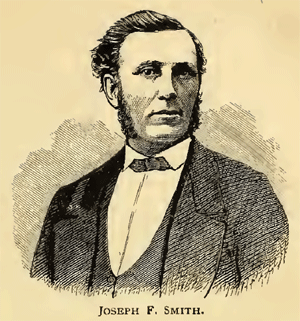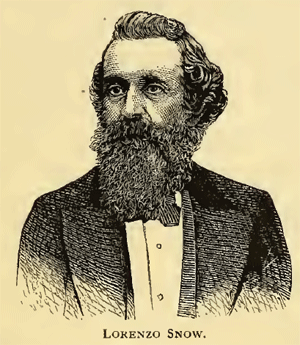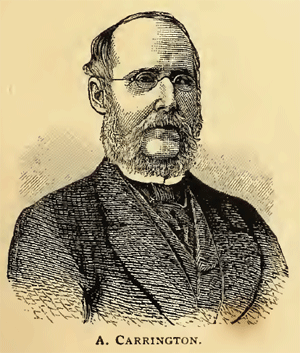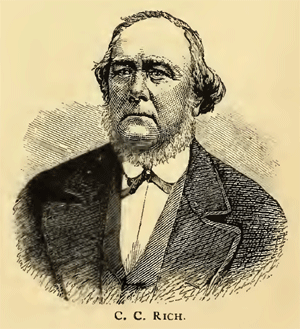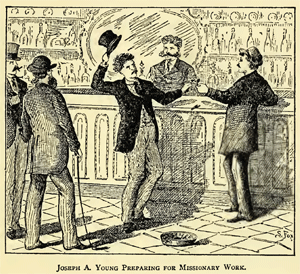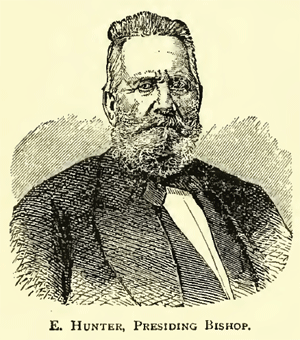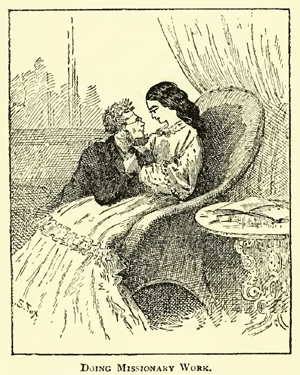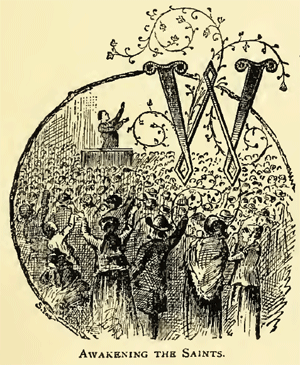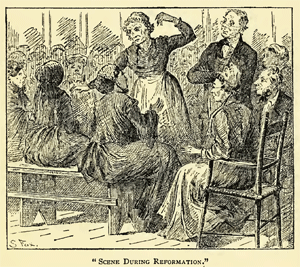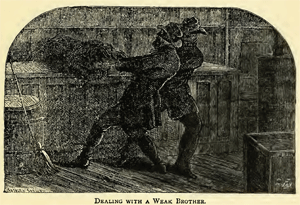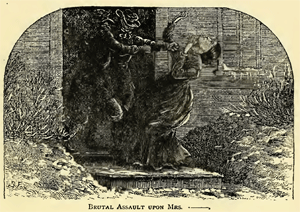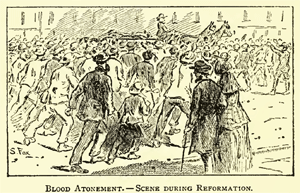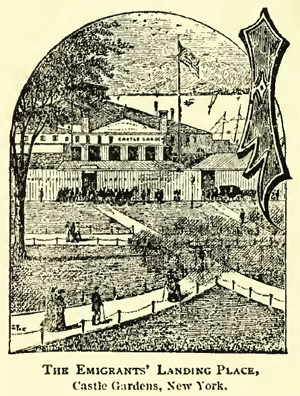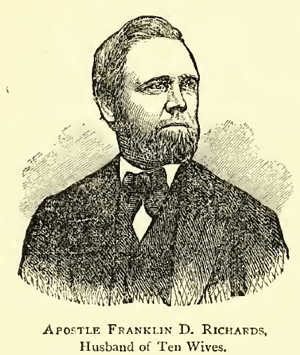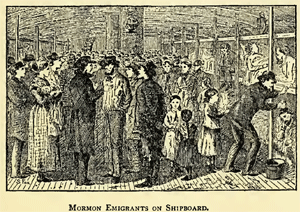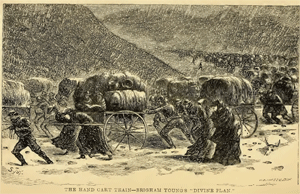The Saints expelled from Missouri. They cross the Mississippi into Illinois. Forming a New Settlement. Arrival in Quincy. A Kind Reception. The City of "Nauvoo" Founded. A New Temple Begun. Great Success of the Foreign Missions. The Saints flock from Europe. Thousands assemble in Nauvoo. The Prophet Joseph applies for a City Charter. Nauvoo Incorporated. The Saints Petition the National Government. The Prophet visits Washington. His Interview with President Van Buren. He Coquets with Politics. He Stands on the Edge of the Precipice. The Saints in Danger. The Prophet Smith nominated for President. He tries to find the "Golden Way." Mormon Missionaries preach Politics. The Prophet looks towards the Pacific Coast. The Blind Obedience of the Saints. The Real Devotion of their Faith. Gentile Opinions. How Boggs was Shot in the Head. The Spiritual-Wife Doctrine. Dr. William Law Protests. Terrible Charges against the Prophet. The "Nauvoo Expositor." The Prophet Surrenders. He is Murdered in Jail.
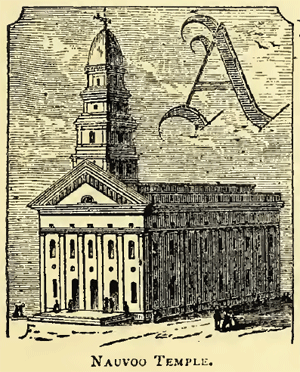
NAUVOO TEMPLE
AFTER this, crime succeeded crime, and the state of affairs grew worse daily. The Mormons were getting decidedly the worst of the warfare, and their opponents showed them no mercy. At the massacre at Haun's Mills, for instance, men, women, and children were shot down in cold blood by a company of the Missouri militia, the houses plundered and burned, and the clothing even stripped from the dead bodies.
There had been inhuman murders in other places, men and women alike falling victims to the fury of the mobs; there had been a battle fought at Crooked River, and several skirmishes between the Mormons and Missourians, exaggerated reports of which had spread through the country like wildfire. The whole state was in arms against the Mormons. The governor issued an order of expulsion, thinking it the surest way to quell the disturbance, which had almost grown beyond him, and gave the Saints three months in which to leave the state. Every Mormon was to be out of the state at the end of that time, except those who were in prison. Of them the governor said, "Their fate is fixed; the die is cast; their doom is sealed."
As on the occasion of the removal from Ohio, there was considerable apostasy in the church. Many persons grew discouraged, and their faith wavered. In following Smith they had been led from difficulty into danger, had suffered persecution and poverty, and were now driven from their homes to seek refuge in some more hospitable spot. Every man's hand seemed turned against them, and they had grown tired of perpetual warfare. If God had ever called, He had surely deserted them now, and there was no use in their longer undergoing trial and suffering.
Those who remained firm were still strong in the faith; stronger, if possible, than ever. Joseph was their Prophet, and they clung to him and his revelations with unshaken confidence. "Blessed are they who are persecuted for righteousness' sake," was a favorite and comforting quotation at that time. They were cheered by frequent letters from Joseph, written in prison, as they journeyed towards Illinois, which was the next point towards which they turned their feet, already weary with wandering. On receiving the order of expulsion, the Saints pledged themselves never to cease their exertions until every one of their faith was out of the state; and to accomplish this within the time required, they worked unceasingly, through sickness, poverty, and privation.
My mother has often described to me this enforced journey. She was always deeply moved, and never spoke of it that the hot tears did not rush to her eyes, and her voice quiver with indignation. The journey was taken in the dead of winter. Many of the women and children were already ill from exposure, yet they were obliged to leave the state with the rest; and although everything was done for their comfort that could well be done, yet their sufferings were most intense. They were robbed of their horses, and were obliged to make their escape with ox-teams, crossing those twenty-mile prairies, facing cold, wintry winds without even a cover to the wagons. My mother held her two infants close in her arms during all the long, tedious journey, to keep them from perishing. She had but one dress to wear, as she had to leave Daviess County in great haste, taking only her children with her; and on her arrival in Illinois she was entirely destitute, her clothing being literally torn in pieces. In the spring of 1839 all were safely landed across the Mississippi River, where they were joined in April, soon after their arrival, by Joseph and his fellow-prisoners, who had "miraculously," as Joseph said, made their escape from their enemies.
The joy of the Saints was very great at his arrival. The waning courage was restored, wavering faith was strengthened, and they were all ready to enter the next scheme which his prophetic soul should propose, and to follow blindly and unquestioningly the next "revelation."
The feeling of the Mormon people towards the Missourians is very bitter to this day, and they have never lost an opportunity in all these years of injuring them whenever it became possible. The memory of the indignities heaped upon them, and the sufferings to which they were subjected, is still most vivid. Even my mother, notwithstanding the fact of her having apostatized, and having now no interest or faith in the Mormon Church, can never forgive the Missourians. She says, "If the Mormons were the greatest fanatics on the earth, the Missourians cannot be justified in the course which they pursued. There is no doubt they were exasperated by the actions of the Mormons, and suffered loss of property, and even life, at the hands of the Danite bands; but they need not, in the cruel spirit of revenge, punish the innocent women and children, for it was on these that the blow fell the hardest. It was they, who had no part in bringing on the trouble, who were to suffer in retribution for the misdeeds of others."
Notwithstanding all that had taken place in Missouri, some of the more enthusiastic Saints believed that it was the promised land, and that some time they should come in and possess it. Indeed, that belief has prevailed among some of the older Mormons until within a very short time. Brigham has preached it and promised it; but now he says very little about it, and when he does he is wise to add, "if the Lord shall will it so." The present indications are, that the Lord will not "will it so," and all the Saints have contentedly accepted Utah as "Zion," in the face of "revelation."
In giving, thus briefly, a sketch of the "Missouri war," I tell the story as I have always heard it, since I was a child, from my parents, who were in the midst of it, and who were rendered homeless and poor by it. Although always hearing it from the Mormon side, I must, to do the narrators justice, say they have never attempted to hide any part of the provocation which the Saints gave; and they now hold Joseph responsible for it, by his, to say the least, unwise teachings.
It is not very long since I was talking with a person who was with the Mormons in Missouri and Illinois. He said that Joseph not only advised his people publicly to plunder from the Gentiles, but privately ordered them to do so. At one time he was himself sent by the Prophet to steal lumber for coffins. He went with a party of men down the river, loaded a raft with lumber from a Gentile saw-mill, and brought it up to the "City of the Saints." Another man, now a bishop in the Mormon Church, told my mother that he was deputed by Joseph to go and take some cattle, and drive them to the city. As he was entering the town on his return from his successful marauding trip, he was called into a house, where there were sick persons, to anoint and pray for them in connection with another elder. On meeting this elder afterwards, he remarked, "I have often wondered that the Lord listened to our prayers in behalf of the sick under such circumstances. The elder replied, quietly, "I had not been stealing."
Had such teachings been given by the Gentiles, and followed by their people, it would have been sin. But with the Mormons it was always "the will of the Lord," and in His name they committed the crimes that produced disaster and disgrace among the people of Missouri, and finally resulted in their own expulsion from that state. Thus it was that at length we find them driven out by violence from among a people who at first had received them with the utmost friendliness, and forced to seek refuge on the farther shore of the Mississippi, despite the promise which Joseph had so often given them, "in the name of the Lord," that Missouri should be the abiding-place of the Saints.
Joseph, however, still continued to assert that the Saints "should return again and build up the waste places of Zion," and pointed out Missouri as the spot which was to be the "central stake" from which he was eventually to rule all America; but the fact remained that the people must have homes until such good time as they might be allowed to "come again to their own."
They had landed at Quincy, Illinois, and had been very kindly received by the residents. On their arrival they at once commenced searching for a place to settle, and build another stake;" and the place finally selected by the Prophet was situated on the Mississippi River, about forty miles from Quincy. It was first called Commerce; but this name being considered altogether too matter-of-fact and practical, it was named, by inspiration, NAUVOO, which, being translated from the "Reformed Egyptian," the language in which all revelations were first given, means "The Beautiful."
The new city grew rapidly ; another Temple was commenced by command of the Lord, and the people were adjured not to cease work upon it until it was finished; all the Saints were commanded to gather there as soon as it was practicable. Missionaries were sent to Europe, and converts flocked from thence to Zion. Never were missions crowned with greater success than those that were established in Europe by the Mormon Church. The elders went first to England, from there to Norway, Sweden, Denmark, Switzerland, France, and they even attempted Italy, but with so little success that the mission there was speedily abandoned. Indeed, the southern countries of Europe did not seem to have taken kindly to the new doctrine of the Saints, and evinced but slight interest in the establishment of a "spiritual kingdom on the earth," and paid no heed whatever to Joseph's revelations. But hundreds of converts were made among the English and Scandinavian people, and they all evinced a strong desire to "gather to Zion," and considered no sacrifice too great to be made to facilitate their emigration. Most of them were from the poorer classes, but some among them were persons of considerable wealth, and many were from the comfortable middle class of farmers and trades people.
The people of Illinois were inclined to be very friendly with the Mormon people, and to make up by sympathy and kindness for the treatment which the Saints had received in Missouri. But, as has invariably been the case, the Mormons, by their own acts, managed to turn these friends into enemies, and to embroil themselves in more quarrels.
The people in the surrounding towns found them troublesome, and most undesirable neighbors; for in spite of their kindly reception, Joseph did not cease his injunctions to "get all you can from the wicked Gentiles," and the consequence was perpetual trouble and constant complaint.
Early on his arrival at Nauvoo, Joseph applied to the Illinois legislature for a city charter, which was granted at once. This charter was extremely liberal, and by its ambiguous wording deceived the legislature, they considering it straightforward and honorable, while really it gave Joseph unlimited power in the government of the city, without regard to state or national laws, and rendered it impossible that he could be held prisoner, even if arrested. He had the right to release himself: the charter provided for that.
Before the establishment of the city it was "revealed" to Joseph that his people must importune at the feet of all in authority for a redress of their wrongs in Missouri. They commenced with the justices of the peace; from them they went to the state officers; finally to the President himself. They prepared very carefully, and, as far as possible, very accurately, a statement of the losses of the Saints in Missouri, and Joseph Smith, Sidney Rigdon, and Elias Higbee went to Washington with it, to endeavor to seek redress through the agency of Congress.
Marlin Van Buren, who was President at that time, received them with that peculiar suavity of manner for which he was specially noted, that impressiveness which expressed so much and meant so little, and listened to them with the most courteous patience. But his answer was: "Gentlemen, your cause is just, but I can do nothing for you." The party returned to Nauvoo disappointed, but in no wise discouraged, and exceedingly indignant with the government and the entire American people, whom they considered their enemies from that moment. From the lowest officer to the highest, they considered that they had failed to meet with the slightest sympathy, and there was no desire shown to make any amends to these people. Joseph and the elders indulged in more incendiary talk than ever; but this was now devoted entirely against the government.
"In the name of the Lord God of Israel," prophesied Joseph, "unless the United States redress the wrongs committed upon the Saints in Missouri, in a few years the government will be entirely overthrown." And again: "They all turned a deaf ear to our entreaties, and now the Lord will come out in swift fury and vex the nation."
The troubles in Illinois culminated, as they had in Missouri, in political difficulties. The people of Illinois were growing exceedingly tired of their new citizens, whom they had welcomed so warmly, since their kindness had been returned with so much ingratitude by the Mormons; but the political leaders of the state endeavored to curry favor with Joseph, and obtain his influence, since it had been discovered that the Mormon vote was solid. Whigs and Democrats had each tried to secure them, but Smith had his own purpose to serve, and he used either Whigs or Democrats as best suited him. Neither party could rely on him or his promises, and consequently both became exceedingly hostile towards him, and were equally zealous in endeavoring to limit his power. He was, indeed, rendered perfectly independent of the state laws by the charter which the governor so readily signed, without being aware what a blunder he was committing; and the exertions of the Illinoisians were directed towards getting this charter repealed. Anti-Mormon organizations were formed for the purpose of inducing the legislature to cancel the charter, disband the Nauvoo Legion, a military organization, of which Joseph was commander-in-chief, and, if possible, to eventually get rid of the Mormons altogether. The feeling ran quite as high as it had done in Missouri, although there were no such deeds of violence as that state witnessed. It remained, for some time at least, a political rather than a personal warfare, and Joseph seemed for many months to maintain his position in spite of every exertion of his enemies; and, in fact, got decidedly the best of them in every way.
Joseph's political career was, to say the least, an intricate and an ambitious one. He aimed at the very highest position which the country could give him. He inaugurated a legislature at Nauvoo, in opposition to that of the state; but he took good care that it should be kept from the knowledge of all persons outside of the city, and this same legislature did, in its way, the most remarkable work. One of its acts was to nominate Joseph for the Presidency of the United States.
Clay and Calhoun were at that time rival candidates for the Presidency, and Joseph wrote to both of them, asking them what course they would pursue towards the Mormons in case they were elected. Neither of them answered in a manner to please him; they were altogether too indefinite, refusing in any way to commit themselves to the Mormon cause; and he gave them both a severe castigation, and withdrew his support and countenance from both parties; and with him, of course, went the whole body of the Mormons.
He published his own views on the national policy in a pamphlet, and announced himself as Presidential Candidate. His followers confidently believed that he would be elected. They had no idea that he could fail to attain whatever he attempted. Missionaries were sent all over the United States, proselyting and electioneering, and the Saints certainly worked faithfully to further their Prophet's ambition.
In the legislative assembly he had those friends and allies in training who were to form his cabinet when he should reach the White House. Of this assembly, Brigham Young was an important, active, and favorite member, and Joseph prophesied wonderful things of him. It is said that he even named him as his successor as leader of the Mormon people. But I think that that story is a little more than doubtful.
In the midst of all this seeking after political influence, Joseph Smith must, I think, have had some idea of the hopelessness of it all, and some presentiment at least that his failure must be followed by another exodus of the Mormon people, for as early as 1842 he began to talk of the superior advantages of the Pacific valley as a settlement, and the "Lord's finger" seemed turning slowly but surely in that direction, and it was not long before the Prophet sent a company of men to explore that, then, almost unknown country, and not long after he began prophesying that in five years' time the Saints would be located "away from the influence of mobs."
The Saints, as usual, received the prediction in good faith, and were ready to follow him wherever he should lead, notwithstanding that doing so meant giving up home, and property, and becoming poor, exiled wanderers. The devotion of this deluded, persecuted people to their false Prophet was almost sublime. In answer to his "Leave all and follow me," came the self-sacrificing words, "Whither thou goest we will go; thy God shall be our God."
Mistaken, deceived, deluded as they were, the great body of this people deserve some charitable regard, since they obeyed the dictates of their consciences, and were willing to suffer martyrdom for their religion. The great body of them are not answerable for most of the crimes committed by the command of the leaders, since they were ignorant of them, and their hatred of the Gentiles is not so greatly to be wondered at, since they suffered the persecution without even knowing that there was the slightest cause for it, except their objectionable belief. I feel that I must pay this tribute to the Mormon people. Naturally, they were a law-abiding, peace-loving, intensely religious people; their peculiar natures, touched a little with fanaticism, having that mental organization that not only accepts the supernatural, but demands it, made it the more easy for them to become the victims of a man like Joseph Smith.
The belief that they were the very chosen of God; that He revealed Himself to them through their Prophet; that He took special note of their in-comings and out-goings; that He led their way in all their wanderings, sometimes in thorny paths, sometimes through pleasant places, -- made them positively heroic in their devotion. I hold that their earnestness and singleness of purpose ought to win them a certain degree of respect, mingled with the intensest pity that they could become the dupes of such unscrupulous, overbearing, unprincipled men as their leaders have proved themselves to be. They have been blinded by fanaticism, and led by false representations. Kept in a community by themselves, forbidden any intercourse with the outside world, they have known nothing outside of Mormonism except what their rulers have chosen to tell them, and that has never been the truth. They have believed that every man's hand was against them; that they were literally "persecuted for righteousness' sake;" and they have been taught that the Lord commanded them to hate all persons not of their belief, and that it was an act pleasing to Him whenever a Gentile was put out of the way. Without being murderers at heart, they have been taught that murder is a part of their religion, a vital portion of their worship. I shall explain that belief more fully presently, when I come to speak of the "Blood-Atonement."
The Gentiles have had very little opportunity, until lately, of mingling at all with this people; and they have, quite as naturally on their part, judged the Mormons to be a blood-thirsty, cruel, dishonest, and licentious people, who not only did not merit toleration, even, but ought, indeed, to be utterly exterminated. No good could possibly come out of Nazareth, they thought; and a person avowing himself a Mormon has not been so much an object of hatred as of loathing and contempt.
Mind you, I am not upholding the Mormon faith; I consider it the falsest, most hypocritical, and most cruel belief under the sun. Although its founder arrogated to it the title of the "Church of Jesus Christ," there is nothing Christ-like in its teachings or in its practice. Its leaders have been, and still are, supremely selfish, caring only for their personal aggrandizement, disloyal to the government under which they live, treacherous to their friends, revengeful to their foes; insincere, believing nothing which they teach, and tyrannical and grasping in the extreme, taking everything that their lustful eyes may desire, and greedy, grasping hands can clutch, no matter at whose expense it may be taken, or what suffering the appropriation may cause. But the people themselves have no part in the treachery, revengefulness, hypocrisy, or cupidity of their leaders, and should be judged from an entirely different standpoint.
In 1842 Governor Boggs, of Missouri, was shot at and wounded severely in the head. This act was suspected to have been done at the instigation of Joseph, and the feeling against him grew stronger than ever. It was with considerable difficulty that his followers prevented his seizure and forcible abduction into Missouri. He was very nearly in the power of his enemies several times; but the devices of the Missourians were nothing compared to the wiles and cunning of the crafty Prophet and his officers. The governor of Illinois attempted to arrest him, but found the warrant of apprehension set aside by the charter which he himself had signed. In fact, it was found that the law was powerless to touch the Prophet, and he could afford to set it at defiance. With that charter to uphold him, and the "Nauvoo Legion" to defend him, he, for a time, completely baffled his enemies.
About this time an added reason was found for hating and dreading the Mormon people and their influence. The "Spiritual-Wife" doctrine was hinted at just at this juncture, and this created even a greater disturbance than the political difficulties had done, since this caused a large apostasy, and divided the church against itself. The accusations that some of the apostates brought against Smith were damaging in the extreme.
One of his chief accusers was a man named William Law, who had been his earnest friend and one of his counsellors. The Prophet had had no stauncher friend or warmer defender than Law, and he was also highly esteemed by all the Mormon people, as well as by Smith himself. He strongly disapproved of some of Joseph's acts, and finally felt obliged to withdraw from him altogether.
After his apostasy, he, with some other disaffected Mormons, among whom were his brother, Wilson Law, Dr. Forster, William Marks, and the Higbee brothers, all men of standing and influence among the Saints, commenced to hold meetings in a grove on Sundays. This grove was a mile from the place where the Mormons held their regular services; yet parties of the Saints were accustomed to go to the other meeting to hear what was said and report to the Prophet. So he was kept well informed of the movements of the apostates, and their attitude towards him and the church.
At one of these meetings, William Law electrified and almost stunned his listeners by testifying that the Prophet had made dishonorable proposals to his wife, Mrs. Law, making the request under cover of his asserted "Revelation," that the Lord had commanded that he should take spiritual wives, to add to his glory. He also stated that Smith made his visit to his wife in the middle of the night, when he knew her husband to be absent. Mrs. Law was present, and her husband called upon her to testify as to whether he had made the statement correctly. She corroborated all that he had said, and added that Joseph had asked her to give him half her love; she was at liberty to keep the other half for her husband. The Higbees testified, at the same meeting, to having frequently seen Joseph's horse standing for a long time before the door of certain improper resorts. This statement was certainly untrue, and was probably made under a mistake. The greatest excitement prevailed after this meeting, and the feeling ran very high between the contending factions of the church. Joseph and his adherents, on their part, charged some of the apostates with gross immorality, and they retaliated by saying they had only followed the teachings of Smith. Criminations and recriminations were hurled furiously at each other by the two parties.
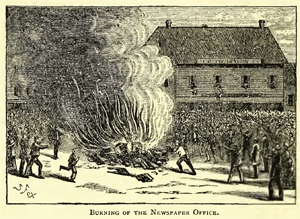
BURNING OF THE NEWSPAPER OFFICE
Law and some of his associates started a paper called the "Nauvoo Expositor" which they intended to devote to the criticism of Smith's policy, and the denunciation of his character. As may be imagined, it was not a very long-lived sheet, only one number being issued. Enraged by its plain speech, Joseph and some of his followers destroyed the building, broke the machinery, and threw away the type, in their strenuous endeavors to suppress "the freedom of the press."
Affairs had reached such a crisis, that to allay the excitement and to explain some of his "peculiar" moral weaknesses, the Prophet found it necessary to produce the famous "Revelation," giving the most unbridled license to all the worst passions of their nature. This "Revelation" was intended to silence the noisy clamorings of the Saints; for who of them would venture to question the convincing "Thus saith the Lord."
It was only given to the faithful in Zion. Its existence was denied loudly, if in any way a whisper of it reached the outside world, and the missionaries were cautioned to keep utter silence upon the subject. Among the Saints it was received most reluctantly. The women, especially, felt that a cross was being laid upon them greater than they could bear, and many openly rebelled. They felt that some great trouble was come upon them, but they did not then know the intense bitterness of it, nor what the moral results would be. The majority of them did not believe that they would suffer personally from it; but, alas! they little knew how easy it would be to convince a man that positive wrong would become moral right, when all legal restrictions were removed, or when the conscience could be so easily soothed by the opiate of "Revelation."
Joseph's career, after producing his "Celestial Marriage" cheat, and palming it off on his followers with the blasphemous "Thus saith the Lord," was very short. He was induced to surrender himself to the authorities, and with his brother Hyrum, the Apostle John Taylor, and the Apostle Willard Richards, was placed in the Carthage jail.
It was feared by the Mormons, and by some of the Gentiles, that attempts would be made to massacre him in prison; but Governor Ford, under whose protection he was, seemed to apprehend no danger, and placed no extra guards about the prison. He himself went from Carthage to Nauvoo, to see personally into the condition of affairs there, and also to assert his authority, but took no measures for a redoubled care and watch over the prisoners. While he was away the jail was attacked, and the Prophet and his brother Hyrum assassinated. Their companions escaped with wounds.
The history of Joseph Smith is one of the most remarkable on record. From an ignorant, superstitious farmer's boy, he became "Prophet, Seer, and Revelator," founder of a new religion, which was to make his name known, not only in his own country, but over the world; made by "Divine appointment" "God's Vice-gerent upon the earth, and Religious Dictator to the whole world." So much for his spiritual titles. He was no less fortunate in earthly honors; being President of the "Council of Fifty," chief of the legislature of Nauvoo, and Mayor of the city; and at last he aspired to the Presidency of the United States a position, it is needless to say, which he did not attain.
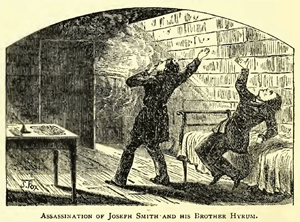
ASSASSINATION OF JOSEPH SMITH AND HIS BROTHER HYRUM
It is safe to believe that no one man can wear all these "honors" without growing somewhat dizzy under them; and it is no wonder that the Prophet Smith overreached himself at last, and fell a victim to his overweening ambition and stupendous self-esteem, which probably made him believe that he could accomplish impossibilities.

